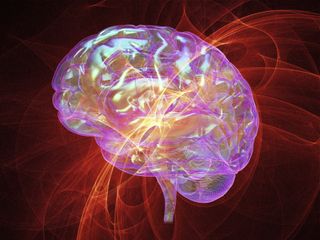7 Ways Meditation Can Help You Reduce and Manage Stress
Chronic stress can take an enormous toll on your happiness and health, leading to an increased risk of many diseases. Meditation is a powerful way to release tension and stay centered in the
face of life’s inevitable upsets. Discover seven ways that meditation can help you let go of fear and experience the healing benefits of deep rest.
Your Stress Response
- High blood pressure and heart disease
- Autoimmune illnesses
- Some kinds of cancer
- Migraine headaches
- Depression and anxiety
- Diabetes
- Obesity
- Memory loss
1. Meditation Reverses the Effects of the Stress Response
- Decreased heart rate
- Normalization of blood pressure
- Deeper breathing
- Reduced production of stress hormones, including cortisol and adrenaline
- Strengthened immunity
- More efficient oxygen use by the body
- Reduced inflammation in the body
2. Meditation Increases the Body’s Neurotransmitters of Well-being
- Dopamine plays a vital role in the brain’s ability to experience pleasure, feel rewarded, and maintain focus. Dopamine also regulates your mood and sleep.
- Serotonin has a calming effect. It eases tension and helps you feel less stressed and more relaxed and focused. Low levels of this neurotransmitter have been linked to migraines, anxiety, bipolar disorder, apathy, feelings of worthlessness, fatigue, and insomnia.
- GABA (gamma-aminobutyric acid) sends chemical messages through the brain and nervous system. One of its many roles is to inhibit the activity of nerve cells, helping to control fear and anxiety when neurons become overactivated. When the body is deficient in GABA, the symptoms include nervousness, racing thoughts, and sleeplessness.
- Endorphins are most commonly known as the chemicals that create the exhilaration referred to as “the runner’s high.” These neurotransmitters play many roles related to well-being, including decreasing feelings of pain and reducing the side effects of stress.
3. Meditation Promotes Relaxation and Restful Sleep
 Many of us live in a state of chronic sleep deprivation, which increases our stress levels and irritability. Scientific studies have found that meditation is an effective therapy for insomnia and can help you get the restful sleep that is vital to physical and emotional health.
Many of us live in a state of chronic sleep deprivation, which increases our stress levels and irritability. Scientific studies have found that meditation is an effective therapy for insomnia and can help you get the restful sleep that is vital to physical and emotional health.
When you meditate, your brain produces more brainwaves that promote deep relaxation, including alpha and theta brainwaves, which are associated with deep relaxation. After a meditation practice, you carry this sense of greater calm with you into your activities, allowing you to stay more centered in the face of life’s inevitable upsets. Then when it’s time to bed, instead of ruminating about what happened earlier in the day, you are more likely to drift to sleep—and stay asleep.
4. Meditation Improves Focus and Attention
 Many people feel stressed because they’re trying to do more than one thing at a time. As neurosciences have discovered, the conscious brain cannot multitask. If I’m speaking to you and checking my emails at the same time, I’m doing neither. Meditation helps you to train your brain to stay focused on the task at hand rather than letting our attention be pulled away by every passing thought and distraction. This one-pointed attention makes you more effective and less stressed.
Many people feel stressed because they’re trying to do more than one thing at a time. As neurosciences have discovered, the conscious brain cannot multitask. If I’m speaking to you and checking my emails at the same time, I’m doing neither. Meditation helps you to train your brain to stay focused on the task at hand rather than letting our attention be pulled away by every passing thought and distraction. This one-pointed attention makes you more effective and less stressed.
For example, a study of meditation and focus led by Dr. David Levy at the University of Washington found that a group of human resources managers who received meditation training were able to stay focused for more extended periods, without switching back and forth among tasks. The researchers also found that meditation improved the memory of study participants while reducing their stress.
In another randomized, controlled study, a group of university undergraduates who practiced mindfulness and meditation for only two weeks experienced a significant improvement in their ability to focus on a task without becoming distracted. Also, the study participants improved their working memory capacity.
5. Meditation Releases Emotional Turbulence
Through the practice of meditation, you develop what is known as “witnessing awareness,” which allows you to observe your thoughts and feelings and stories with greater objectivity and distance, rather than getting pulled into the melodrama of emotional reactivity. As you begin to witness your mental activity, without attempting to resist or change it, there is a spontaneous calming of the inner commotion. Over time, you will begin to notice that some space has been created around severe emotional states. You will start to see that there is more to who you are than your moods or thoughts, and you may also observe that the sensations associated with the negative state dissolve altogether.
6. Meditation Can Change Your Brain’s Stress Patterns
 Meditation is a powerful tool for awakening new neural connections and even transforming regions of the brain. As researchers have found, meditation can also change the brain’s structure in ways that decrease habitual stress patterns and promote calm.
Meditation is a powerful tool for awakening new neural connections and even transforming regions of the brain. As researchers have found, meditation can also change the brain’s structure in ways that decrease habitual stress patterns and promote calm.
For example, research conducted by Harvard University and Massachusetts General Hospital found that after only eight weeks of meditation, participants experienced profitable growth in the brain areas associated with memory, learning, empathy, self-awareness, and stress regulation (the insula, hippocampus, and prefrontal cortex). Also, the meditators reported decreased feelings of anxiety and greater feelings of calm.
7. Meditation Connects You to Your True Self
From a spiritual perspective, the ultimate purpose of meditation is to awaken to your true self. Although it’s natural to identify yourself with your body, mind, thoughts, emotions, personality, possessions, accomplishments, relationships, and preferences, these time-bound attributes aren’t who you are. Your true self is pure, unbounded consciousness, which transcends space and time. Pure consciousness is also known as the field of all possibilities. The attributes of this field include happiness, love, timelessness, compassion, creativity, wisdom, peace, silence, and grace. You are already pure love, pure friendship, and pure awareness. You have forgotten who you are.
When you spend time in the inner silence of meditation, you begin to have a spontaneous experience of the attributes of your true self. Instead of getting stuck in constricted awareness, which limits your possibilities, you experience expanded or pure consciousness, which is the field of all options. This awakening to your true self is usually gradual. Little by little, you release the stress and limiting thought patterns that obscure your awareness of your essential nature, which is always there, shining brightly.


No comments:
Post a Comment